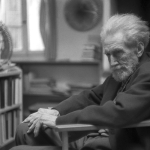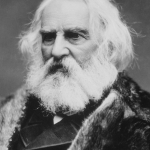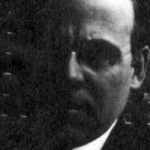I was the child that passed long hours away
Chopping red beetroot in the hay-piled barn;
Now must I spend the wind-blown April day
Minding great looms and tying knots in yarn.
Once long ago I tramped through rain and slush
In brown waves breaking up the stubborn soil,
I wove and wove the twilight’s purple hush
To fold about the furrowed heart of toil.
Strange fires and frosts burnt out the seasons’ dross,
I watched slow Powers the woven cloth reveal,
And Day and night pushed on the heavy wheel.
Held close against the breast of living Powers
A little pulse, yet near the heart of strife,
I followed the slow plough for hours and hours
The big winds, harsh and clear and strong and salt,
Blew through my soul and all the world rang true,
In all things born I knew no stain or fault,
My heart was soft to every flower that grew.
The cabbages in my small garden patch
Were rooted in the earth’s heart; wings unseen
Throbbed in the silence under the dark thatch,
And brave birds sang long ere the boughs were green.











Comment form: